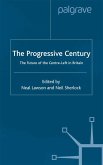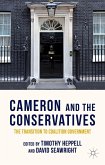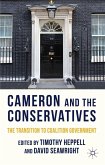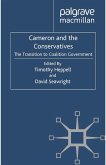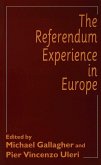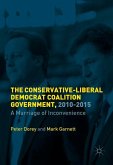Anchored in the idea that political campaigns matter to electoral outcomes, The Politics of Emotions, Candidates and Choices analyzes the dynamics of emotional voting and decision-making over the course of three presidential elections between 2004 and 2012. Each presidential campaign reflects a unique tone and mood, which influences voters' perceptions of choices and candidate image. Accounting for the idiosyncratic nature of a campaign environment and a candidate's message, this analysis isolates specific emotional dimensions that were influential on voters' appraisals of specific campaign issues. Relying on the Affective Intelligence theory and the Transfer-of-Affect thesis to narrate the causal relationships between voters' emotional responses and issue appraisals, this book illustrates the specific electoral contexts when voters' emotions are trusted as political knowledge and transferred to their beliefs about certain policies.
Bitte wählen Sie Ihr Anliegen aus.
Rechnungen
Retourenschein anfordern
Bestellstatus
Storno


